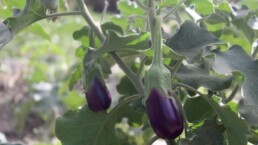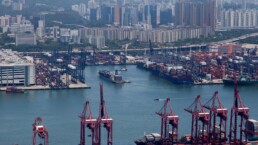Agriculture continues to be a major sector for many developing and emerging economies. For Africa in particular, the agricultural sector – powered by an army of smallholder farmers – remains its economic mainstay. The smallholder farmers that feed their families as well as rural and urban populations face difficulties in accessing local, regional and international agricultural markets, receiving low prices for their products. Essentially, this means that they find themselves at the wrong end of the value chain – defined simply as “… the activities involved in delivering value to customers.”
The inclusion of vulnerable smallholder farmers in agricultural value chains is an effective and important means of fostering poverty reduction and improving livelihoods. In Ghana, for example, smallholder farmers that grow Ghana’s third-largest export, cocoa, are completely dependent on global cocoa prices for their livelihoods. However, the power dynamics within the cocoa value chain mean that individual producers and exporting countries are price takers, who have little say in the price for this particular commodity. The Vice President of Ghana has openly lamented the unfair wealth distribution along the value chain and has committed to improving the livelihoods of farmers in Ghana by addressing this issue. Ghana is only second to Côte d’Ivoire and the story is no different there. According to estimates, most of the country’s cocoa producers (about 80%), live on less than $3 a day.
Furthermore, efforts by Ghana and Côte d’Ivoire to raise prices by controlling supply, in a similar way to the Organization of the Petroleum Exporting Countries (OPEC), have been largely unsuccessful up to this point. These prices are set, or are at least influenced, by big multinational corporations that dominate the global cocoa trade. They create uncertainty and instability with their aggressive negotiation tactics. This is evident in Ghana’s struggles to mobilise growers’ support and secure buyers for their cocoa after introducing the premium of $400. Such inequality in value chains does not exist just at the macro level between countries – it is also present amongst smallholder farmers within the value chain.
In many agricultural value chains, women face more difficult conditions than men. Such gender inequity results in a missed business opportunity, because it can affect competitiveness by limiting productivity, economic growth and trade performance. Although women make up approximately 43 percent of the agricultural labor force, and produce over 50 percent of the world’s food, they generally have the least access to and control over productive resources.
What steps can be taken?
Firstly, gender equality cannot be realised without adequate support from males; as many women in developing countries who participate in agricultural value chains hail from deeply patriarchal societies. Gender desensitisation through the education of male farmers and other male actors involved in value chains, can help spark a change in mindset where males can start to view women as partners and meaningful contributors to society. In this respect, a value chain is only as inclusive as the rules that govern it. Therefore, countries must implement policies that foster an enabling environment for women. In cases where these laws already exist, governments can invest in awareness raising initiatives within communities about legislation already in place to support women.
The process of “empowerment” unlocks avenues for women to gain more agency and attain more power to determine the course of their lives. Access to capital by creating or connecting women to tailored financial products that support their needs is one means of achieving this. Additionally, harnessing the power of community in rural settings cannot be understated. Not only can women access financing through structures such as community saving groups, but membership to farmer groups and associations as well. When backed by the strength of a community, women can negotiate better deals and can access global markets at more profitable prices.
Ultimately, all participants in value chains contribute to the value addition as products move towards the consumer. However, as things stand, agricultural value chains are creating and exacerbating inequalities within and between countries. Such issues have serious implications for inclusivity and the ability of developing countries to drive inclusive economic growth and development. It is encouraging though, to see the governments of Ghana and Cote d’Ivoire make intentional efforts to grapple with this.
The views expressed in this article are those of the author alone and not the Future Africa Forum.
The views expressed in this article are those of the author and do not necessarily reflect the views of Future Africa Forum. Future Africa Forum is a pan-African policy think-tank and policy advisory consultancy headquartered in Nairobi, Kenya.



